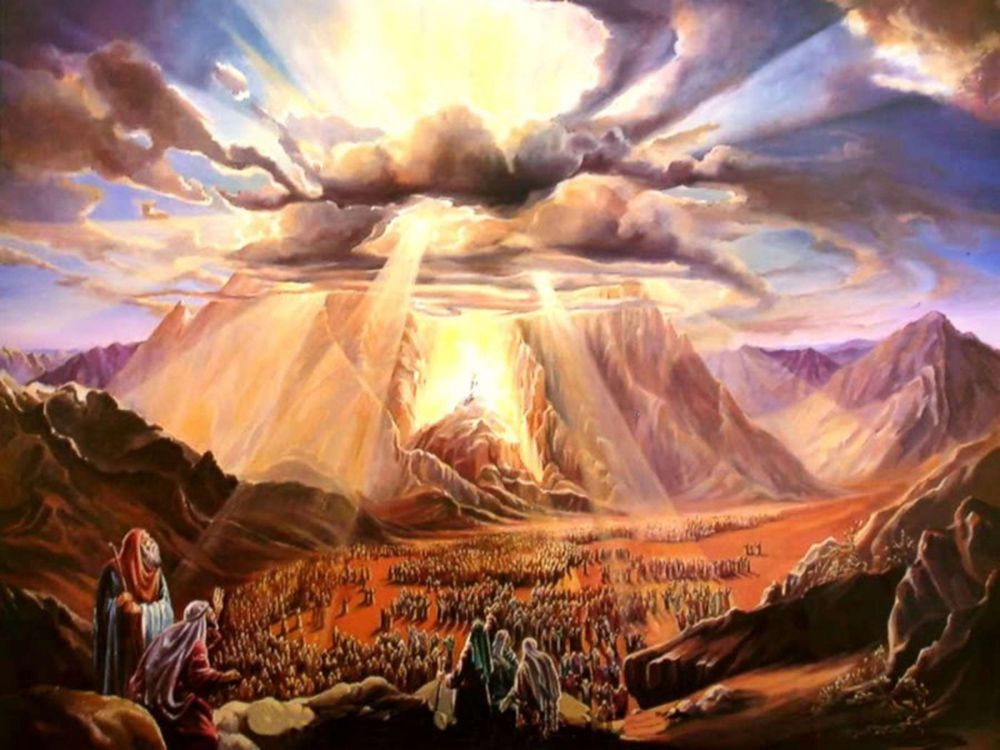By: Rabbi Label Lam
Who can assure that this heart should remain theirs, to fear Me and observe all My commandments, all the days, so that it should be good for them and their children forever? Go say to them, “Return to your tents”. (Devarim 6:26-7)
Having delivered admonishments to the nation, Moshe reviews the episode of the giving of the Torah on Mt. Sinai. He relates that HASHEM instructs him to tell the people to return to their tents. The Kotzker Rebbe understood this verse to mean that HASHEM was saying to Moshe, “I want to see now how they will conduct themselves in their homes.” It is true that here at Mt. Sinai which is ablaze with fire their hearts are directed towards heaven, but now go direct them to bring their burning enthusiasm back to their tents, only then will this experience find permanence and perpetuity.”
There’s a Mishne in Pirke Avos that may be saying the same thing. “Let your house be a meeting place for sages…” (Avos 1:4) Rabeinu Yona confirms the notion that one’s home should be a place where the wise congregate. I however confronted a problem teaching another Mishne in Pirke Avos that may have bearing on the way we learn this one.
The Mishne says, “Precede every man with Shalom.” (Avos 4:14) I taught this Mishne in Hebrew Day School the way Rashi learns it. He quotes Tractate Brochos (17A) that Rabbi Yochanan Ben Zachai was the first to say “Shalom” to every person he confronted, even a gentile in the marketplace. My lesson must have made a strong mark on their impressionable little minds or it appealed to their competitive spirits because the next day I had a huge issue developing before my eyes. Everyone in the class wanted to be the first one to say, “Shalom”.
Some were quicker to the drawer. Others were getting frustrated because they couldn’t get the words out fast enough. Absurdly so, fights were erupting over this requirement to say “Shalom” first. As the teacher I had to deal with it. I was somewhat responsible for making this monster. I had to bring it under control. It occurred to me that the Mishne could not be requiring as a moral imperative for everybody to be the first to say “Shalom”.
That’s impossible for everyone to successfully accomplish. It’s a zero sum game.
What does the Mishne mean? “Hevi Makdim B’Shalom L’col Adam can be translated, “To be with peace preceding all men.” It’s talking about a state of being. Before I enter the work place or home I must decide that the outcome will be peaceful. I must not react or overreact to whatever contrary attitudes and opinions I may confront. It occurred to me that the Mishne must be talking not only about the action of greeting others but also the requirement of an attitude, a predisposition for peace.
So too with the Mishne above, “Let your house be a meeting place for sages…”, we confront the same practical difficulty when trying to implement the overt meaning of the Mishne. There will always be more homes than sages to fill them up. How can every individual house be a meeting place for sages? Again the Mishne says, “Yehi Beis’cha…Let your house be…” Your home should be the type of environment that the sages would feel as comfortable entering as you would be hosting them.
Imagine that the Gadol HaDor, Rabbi Aharon Leib Shteinman zt’l during his lifetime was coming over, not to visit for a day or a week but to move in. How much of an adjustment would that be? How uncomfortable might we feel? What would we have to hide, hinder, or curb to accommodate his presence? That standard of thought may be the practical benefit of the common practice amongst Jews world-wide to hang pictures of sages on the walls, if only to remind us home is where Torah resides.





